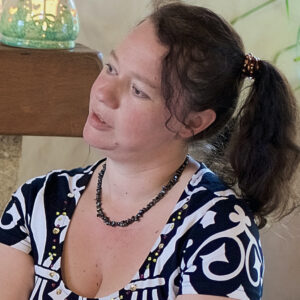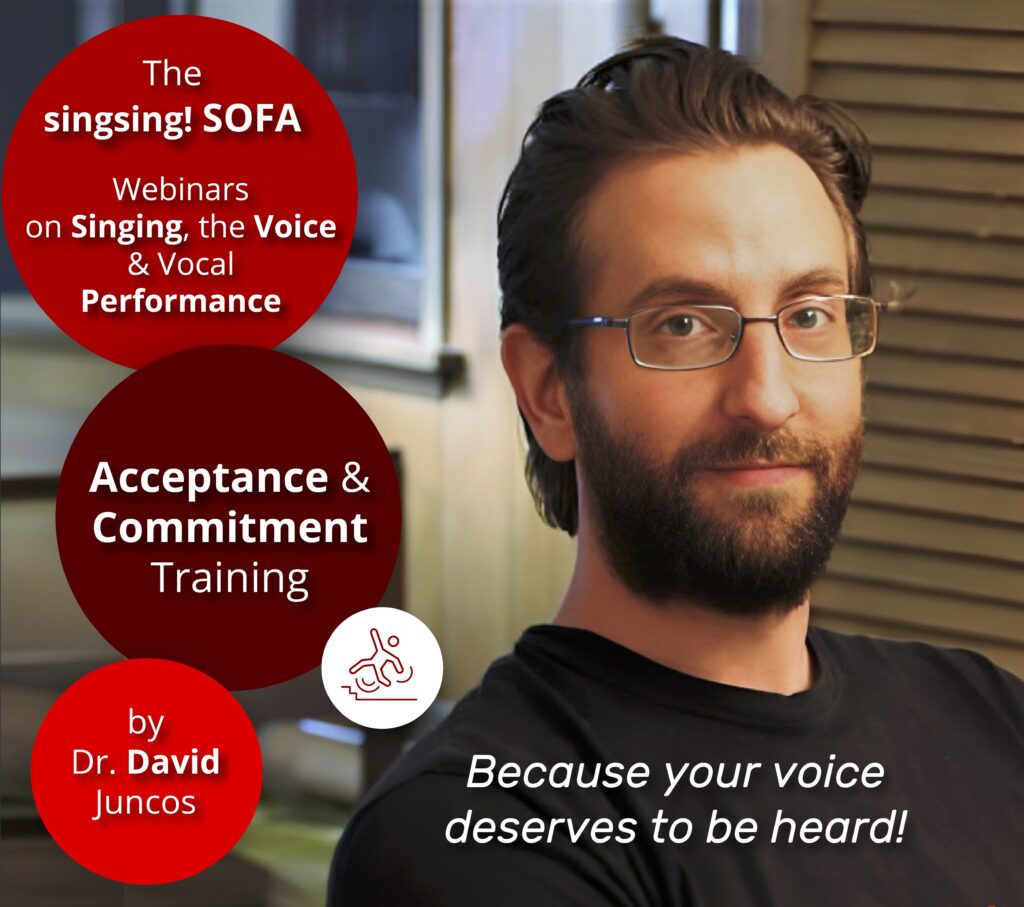
Psychological Flexibility: Use ACT to Reduce Performance Anxiety
28/01/2024
We recently took a deep dive into strategies to deal with performance anxiety in the webinar Acceptance & Commitment Training for Improved Mental Health & Enhanced Performances, led by Dr. David Juncos, who I will call Dave from now on 🙂
Acceptance and Commitment Therapy or ACT is part of the third wave of behavioral psychotherapies. These therapies are different from earlier models like Cognitive Behavioral Therapy (CBT). While CBT focuses on changing distorted thinking patterns, ACT emphasizes mindful acceptance of thoughts and feelings rather than attempting to control or eliminate them.
Acceptance and Commitment Training refers to the application of ACT principles and techniques in contexts outside of therapy, for example in the context of Music Performance Anxiety or MPA. The goal is to increase psychological flexibility. It helps you to recognize when you’re stuck in patterns of mindlessness, avoidance, or fusion with your thoughts — each of which can hinder your performance and well-being.
Subscribe to The singsing! Sofa Library and watch the webinar on Acceptance & Commitment Training (ACT) led by Dr. David Juncos! Through interactive exercises, you’ll be guided to a deeper understanding of how to train psychological flexibility to improve your performances.
Here are some key elements and strategies from the webinar you can integrate immediately in your daily practice:
The Practice of Mindfulness
When you’re mindless, you’re going through the motions without full awareness. You’re for example performing or practicing while being distracted by worries or past events. By training mindfulness, you train to pay deliberate attention to your thoughts, feelings, and sensory experiences in the present moment without judgment.
It helps you to focus on the here and now rather than getting caught up in the automatic patterns of worrying. For singers and performers in general, this means improved focus during practice and performances, allowing you to deal with performance anxiety more effectively.
Mindfulness can be trained! Watch the webinar and let Dave take you through a very effective exercise using a picture frame. You’ll practice maintaining your focus and labeling distractions as irrelevant, allowing you to return your attention to the task at hand.
The Power of Diffusion
One of the core concepts we discussed was cognitive diffusion, the process of creating space between yourself and your thoughts. Instead of getting entangled with these thoughts, you can learn to observe them as mere mental events, which reduces their hold over you. The essence of this work is to neutralize the emotional charge these thoughts hold, turning them into background noise rather than front-stage disruptors.

We all sang our troublesome thoughts out loud during a hilarious collective chorus. This playful approach of singing your thoughts out loud not only helps in diffusing your thoughts but also highlights the absurdity of your mind’s chatter. Kim shared how this exercise made her laugh, which made her thought become detached from its usual significance.
This shift — from a burdensome thought like for example “I can’t hit that high note” to something laughable — is precisely what diffusion aims to achieve. Watch the webinar and join us in this humorous experience 🙂

Moving from Perfectionism to Flexibility
Performance anxiety and perfectionism often go hand in hand. You might relate to Stella’s struggle with perfectionism during voice lessons. Despite practicing perfectly at home, the pressure of wanting to perform flawlessly during lessons – which she imposes on herself – leads to frustration and a sense of failure.
Dave explained that many people have this experience. He emphasized the importance of willingness in the context of psychological flexibility. Willingness is the ability to accept imperfections and continue despite them. By embracing the possibility of making mistakes, you might find that you perform better… and make less mistakes!
The Role of Self-Compassion
We also had an interesting discussion around self-compassion. I shared my practice of helping the singers I work with to understand the roots of their anxious convictions, allowing them to say, “No wonder I’m having this thought”, as a way to foster self-compassion. This technique, which combines acceptance with a gentle, self-validating approach, is a powerful tool in both diffusing thoughts and cultivating a kinder relationship with yourself.
You now know that psychological flexibility — the ability to stay present and engaged in the moment despite the presence of challenging thoughts and emotions — is at the heart of ACT.
Do you want to discover the tools and exercises to develop this flexibility? Subscribe to The singsing! Sofa Library and watch the webinar Acceptance & Commitment Training for Improved Mental Health & Enhanced Performances, led by Dr. David Juncos!
It will help you to practice more effectively, reduce your performance anxiety and enhance your overall well-being by reducing the emotional weight.
And oh! If you’d like to read more about the effectiveness of ACT, here’s Anupa Paul’s research article “Acceptance and commitment coaching for music performance anxiety in adolescent singers”

Gemma Milburn - UK based Singer and Vocal Coach
Gemma Milburn - UK based Singer and Vocal Coach


Katrin - Professional Speaker & Relationship Therapist
Katrin - Professional Speaker & Relationship Therapist


I discovered values I was not fully consciously aware of and what singing and performing actually mean to me. I strongly believe this method will add extra layers of mildness, joy and a much clearer view on my purposes. I can’t wait to discover more!
Kelly Van Hove - Entertrainer focused on Soft HR & communication workshops / Vocational Musical Theatre Singer
Kelly Van Hove - Entertrainer focused on Soft HR & communication workshops / Vocational Musical Theatre Singer


Marie Valembois - Vocational Singer
Marie Valembois - Vocational Singer


Marie Valembois - Vocational Singer
Marie Valembois - Vocational Singer

As always, feel free to send me your thoughts, questions, and feedback in the comments below this blog, via the contact form or in the singsing! online community
Cordially,
Sarah


